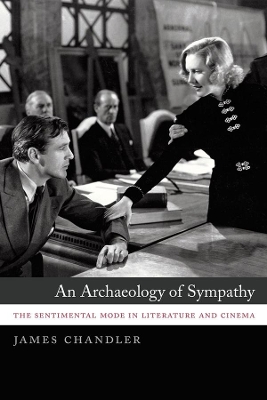In the middle of the eighteenth century, something new made itself felt in European culture - a tone or style that came to be called the sentimental. The sentimental mode went on to shape not just literature, art, music, and cinema, but people's very structures of feeling, their ways of doing and being. In what is sure to become a critical classic, "An Archaeology of Sympathy" challenges Sergei Eisenstein's influential account of Dickens and early American film by tracing the unexpected history and intricate strategies of the sentimental mode and showing how it has been reimagined over the past three centuries. James Chandler begins with a look at Frank Capra and the Capraesque in American public life, then digs back to the eighteenth century to examine the sentimental substratum underlying Dickens and early cinema alike. With this surprising move, he reveals how literary spectatorship in the eighteenth century anticipated classic Hollywood films such as "Capra's It Happened One Night", "Mr. Deeds Goes to Town", and "It's a Wonderful Life".
Chandler then moves forward to romanticism and modernism - two cultural movements often seen as defined by their rejection of the sentimental - examining how authors like Mary Shelley, Joseph Conrad, James Joyce, and Virginia Woolf actually engaged with sentimental forms and themes in ways that left a mark on their work. Reaching from Laurence Sterne to the Coen brothers, "An Archaeology of Sympathy" casts new light on the long eighteenth century and the novelistic forebears of cinema and our modern world.
- ISBN10 022603495X
- ISBN13 9780226034959
- Publish Date 17 June 2013 (first published 1 January 2013)
- Publish Status Active
- Publish Country US
- Imprint University of Chicago Press
- Format Hardcover
- Pages 392
- Language English
- URL http://wiley.com/remtitle.cgi?isbn=9780226034959
